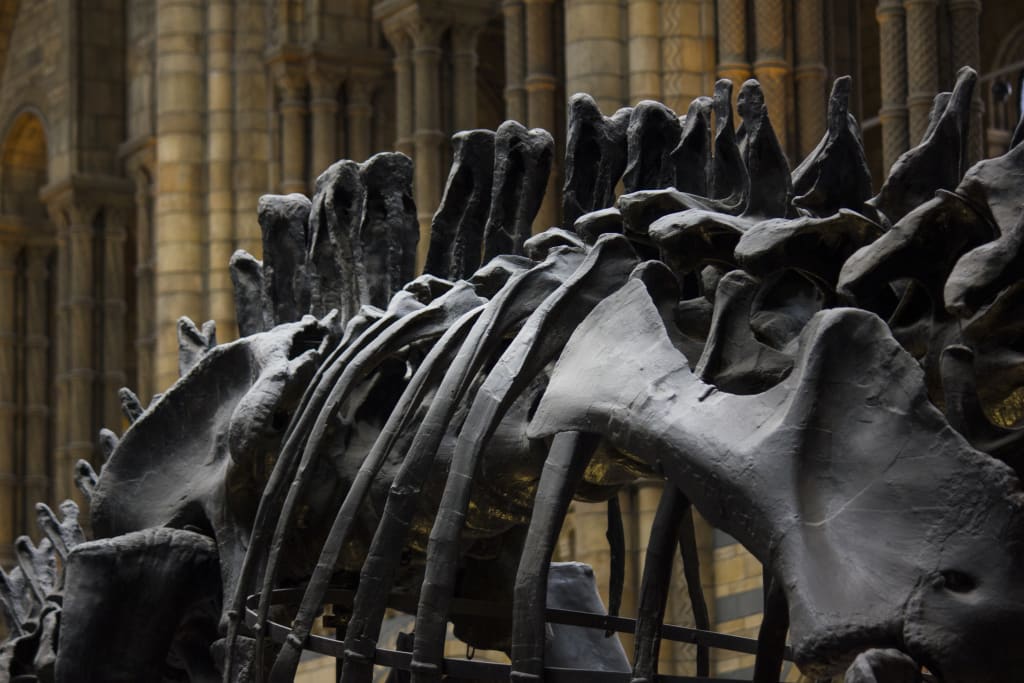
66 million years ago, Earth faced a catastrophic event—a colossal asteroid as large as Mount Everest was hurtling towards our planet on a collision course. This asteroid, approximately 10 kilometers in diameter, traveled at an astonishing speed of 10 to 30 kilometers per second. As it descended, it transformed into a blazing fireball, compressing and heating the air in front of it to unimaginable temperatures.
The asteroid's impact would prove to be devastating, forever altering the course of life on Earth. It struck off the coast of what is now Mexico, sending enormous amounts of debris into the atmosphere. The resulting blast wave annihilated everything in its path. But the destruction didn't end there.
The impact ejected fragments of the Earth's surface into the air, which rained back down as scorching hot pieces of glass and rock. Some of these fragments reacted with the atmosphere, causing acid rain that persisted for years. Fires ignited across the continents, spreading like a wildfire and further decimating life.
The energy unleashed by the asteroid's impact created shock waves that reverberated through the planet. Amidst this chaos, the largest tsunami Earth has ever seen surged forth. A colossal wall of water, over 10 meters high, raced across the oceans with a force that was thirty thousand times more powerful than modern-day tsunamis. Coastal areas stood no chance against this monstrous wave, and the impact reshaped and destroyed entire coastlines.
However, some dinosaurs managed to survive the initial devastation. Those farther away from Ground Zero escaped immediate obliteration. But their fate was sealed as the aftermath unfolded. The impact had propelled a tremendous amount of debris into the atmosphere, blocking sunlight for months, if not years. Earth plunged into a nuclear winter-like scenario, with temperatures dropping and the land becoming cold and dark.
The nuclear winter disrupted photosynthesis and decimated plant life, leading to the collapse of the food chain. Many surviving animals succumbed to starvation. Acid rain continued its relentless assault on ecosystems, rendering the oceans too acidic for marine life to thrive. This combination of prolonged harsh conditions, lack of food, and disrupted ecosystems led to the extinction of around 75% of life on Earth.
After the last of the dinosaurs took their final breaths, Earth became an empty and devastated place, cold and acidic. Recovery was a slow process, but life gradually made a comeback. Ferns were among the first plants to reemerge, followed by small creatures resembling raccoons that repopulated the continents.
Over the course of millions of years, Earth restored its biodiversity, but it was not the same as before. Mammals, birds, and flowering plants took center stage in the age that followed—the age of mammals. Earth reinvented itself, and new species thrived in this transformed world.
Today, Earth faces different challenges, and the natural environment undergoes ongoing problems. However, it is not too late for our planet. There are individuals and organizations, like Planet Wild, who are dedicated to protecting and rewilding the Earth. Their inspiring work reminds us that we can make a difference and strive to preserve and improve our home.
Let's join forces and take action to safeguard our planet, ensuring that we don't meet the same fate as the dinosaurs. Together, we can create a better and sustainable future for all.





Comments
There are no comments for this story
Be the first to respond and start the conversation.